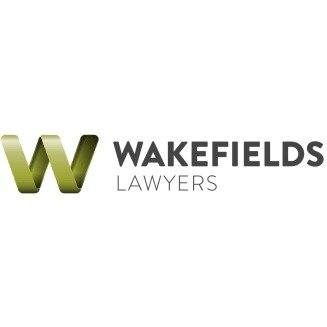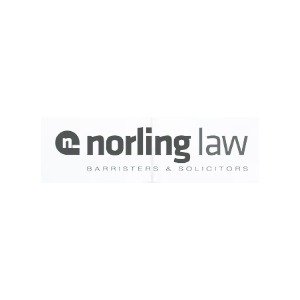Best Bankruptcy & Debt Lawyers in New Zealand
Share your needs with us, get contacted by law firms.
Free. Takes 2 min.
Or refine your search by selecting a city:
List of the best lawyers in New Zealand
About Bankruptcy & Debt Law in New Zealand
Bankruptcy and debt law in New Zealand regulates how individuals and businesses manage insolvency and outstanding debts. It provides a legal structure for the administration of debts where the debtor is unable to meet their financial obligations. This framework ensures fair treatment for creditors and offers a fresh start for debtors through mechanisms like bankruptcy, the No Asset Procedure (NAP), and proposals to creditors. The Insolvency and Trustee Service, a division of the Ministry of Business, Innovation and Employment (MBIE), oversees the enforcement and administration of these laws.
Why You May Need a Lawyer
Individuals may require legal assistance in bankruptcy and debt matters for various reasons, including:
- Facing significant personal or business debt that cannot be repaid.
- Need for advice on whether bankruptcy or other insolvency options are suitable.
- Being pursued by creditors or subjected to collection actions.
- Facing legal proceedings related to debts.
- Needing assistance in negotiating with creditors for a repayment plan.
- Understanding one's rights and obligations under New Zealand law regarding debt.
- Protecting assets from being seized by creditors.
Local Laws Overview
Key aspects of bankruptcy and debt law in New Zealand include:
- Bankruptcy: A legal status applied to individuals who cannot repay debts, lasting typically three years from the date of adjudication. The bankrupt person's assets are managed by an official assignee to repay creditors.
- No Asset Procedure (NAP): An alternative for individuals with no assets who owe less than $50,000 in unsecured debts, offering a fresh start after 12 months.
- Debt Repayment Orders: Allows debtors to obtain an order for paying off creditors over time, managed by the District Court.
- Insolvency Act 2006: Governs most personal insolvency processes, including bankruptcy and the NAP.
- Creditors’ Proposals: Permits debtors to negotiate a repayment plan or settlement with creditors as an alternative to bankruptcy.
Frequently Asked Questions
What is bankruptcy, and how does it affect me?
Bankruptcy is a legal process declaring an individual's inability to pay debts. It involves handing over control of your finances to an Official Assignee, who will manage asset sales to repay creditors. Bankruptcy typically lasts three years.
Are there alternatives to bankruptcy?
Yes, alternatives include the No Asset Procedure, Debt Repayment Orders, or negotiating creditors’ proposals. These options may be more suitable depending on your individual circumstances.
What debts are included in bankruptcy?
Bankruptcy includes most unsecured debts such as personal loans, credit card debts, and unsecured overdrafts. Certain debts like fines, penalties, and student loans are typically not included.
How will bankruptcy affect my assets?
Your assets may be seized and sold to repay creditors. Exemptions may include necessary domestic items and some work-related tools. Certain thresholds apply.
Can I keep my car if I declare bankruptcy?
It depends on the value of the car and your specific situation. If the car's value is above a certain threshold, it may be sold to pay creditors.
How long does bankruptcy last in New Zealand?
Bankruptcy generally lasts three years from the date you are declared bankrupt.
What happens to my credit rating if I file for bankruptcy?
Bankruptcy negatively impacts your credit rating and will remain on your credit record for up to seven years, affecting your ability to obtain credit in the future.
Can I travel overseas if I am bankrupt?
Bankrupt individuals need to obtain permission from the Official Assignee before traveling overseas.
Can I start a business after declaring bankruptcy?
While bankrupt, you face restrictions on managing businesses and occupying certain positions. You need the Official Assignee's consent to engage in business activities.
How can I exit bankruptcy early?
Early discharge may occur in exceptional cases, but typically, bankruptcy lasts the full term unless settled through repayment or proposals accepted by creditors.
Additional Resources
For further guidance on bankruptcy and debt-related matters, consider contacting:
- Insolvency and Trustee Service: A government agency managing insolvency processes.
- Community Law Centres: Offer free legal advice on debt and bankruptcy.
- Citizens Advice Bureau: Provides information and advice on debt management options.
- Budgeting Services: Provides support for managing debts and planning finances, including Family Budgeting Services.
Next Steps
If you're facing bankruptcy or debt issues, consider the following steps:
- Consult a legal professional experienced in insolvency and debt law to understand your options.
- Assess your financial situation with the help of a budget advisor.
- Contact creditors to explore possible repayment plans or settlements.
- Study available alternatives to bankruptcy that might offer a more favorable outcome.
- If pursuing bankruptcy, prepare necessary documentation for the Insolvency and Trustee Service.
Taking informed actions can help you manage debt effectively and seek a path towards financial stability.
Lawzana helps you find the best lawyers and law firms in New Zealand through a curated and pre-screened list of qualified legal professionals. Our platform offers rankings and detailed profiles of attorneys and law firms, allowing you to compare based on practice areas, including Bankruptcy & Debt, experience, and client feedback.
Each profile includes a description of the firm's areas of practice, client reviews, team members and partners, year of establishment, spoken languages, office locations, contact information, social media presence, and any published articles or resources. Most firms on our platform speak English and are experienced in both local and international legal matters.
Get a quote from top-rated law firms in New Zealand — quickly, securely, and without unnecessary hassle.
Disclaimer:
The information provided on this page is for general informational purposes only and does not constitute legal advice. While we strive to ensure the accuracy and relevance of the content, legal information may change over time, and interpretations of the law can vary. You should always consult with a qualified legal professional for advice specific to your situation.
We disclaim all liability for actions taken or not taken based on the content of this page. If you believe any information is incorrect or outdated, please contact us, and we will review and update it where appropriate.
Browse bankruptcy & debt law firms by service in New Zealand
New Zealand Attorneys in related practice areas.
Browse bankruptcy & debt law firms by city in New Zealand
Refine your search by selecting a city.

















